Former Assistant US Attorney Mike Fagan, an expert in online gambling prosecution, wrote the memo below about the ineffectiveness of geolocation technology.
Former Assistant US Attorney Mike Fagan, an expert in online gambling prosecution, wrote the memo below about the ineffectiveness of geolocation technology.
Imagine the legendary chicken business owner Frank Perdue, when asked if he ate the poultry he sold, responded by spitting on the floor and declaring his chicken was “for losers.” What business would ever say that about their product or service? Only one. The gambling business. When The New York Times asked a slot machine designer at International Gaming Technology if he ever plays the machines he builds, “he acted as if I had insulted him. ‘Slots are for losers,’ he spat.” The actions of the IGT employee are not an isolated case. Commercialized gambling is the only business where most of the people who own it and promote it don’t use it and don’t want to live near it. It’s like the executives of the failed energy giant Enron – infamously known as “The Smartest Guys in the Room” – standing in front of their employees assuring them their retirement funds invested in the company are a good bet while at the same time, they were selling millions of dollars of their own stock because they knew it was a sure loser. The owners and promoters of commercialized gambling are “The Smartest Guys NOT in the Room.” These hypocrites cause life-changing financial losses for millions of American citizens. People like Sandy Hall, who had the courage to be interviewed as part of a 60 Minutes investigation into slot machines. Her life was reduced to almost nothing because of slots. Below are the hallowed members of The Hypocrite Hall of Fame who are lobbying to bring even more extreme forms of government-sanctioned gambling into Georgia, including casinos and online gambling. To read more about each Hall of Famer, click on the arrow following the member’s name. “Have you never known in your entire life a gambler who comes here and wins big and…walks away?” Rose asked. “Never,” Wynn replied. “You know nobody hardly that over the stretch of time is ahead?” Rose asked. “Nope,” Wynn said. But how likely is this multimillionaire to lose his own money gambling? The New York Times reported in this December 24, 2006 story: “Murren doesn’t play the tables or slot machines.” According to The Business Times Singapore on December 2, 2006, Lim said: ” Life is full of gambles but I’m not a hard-core gambler.” “As Neil Bluhm walked through the sophisticated high-roller lounge of his newest casino Thursday, I asked him, ‘Do you ever gamble?’ ‘No,’ he said, prompting his gaming chief to remind the Chicago billionaire about a trip to Las Vegas last fall. So Bluhm supplied a different answer. ‘I gamble putting one of these deals together,’ he said with zeal. ‘I spent millions of dollars not knowing whether we were going to have a casino. So do I gamble? Yes.'” Carlino has been at the helm as Penn National metastasized across the US in recent years. Does he gamble away any of his own wealth? Carlino confessed to a Boston Globe reporter in September 2013: “I’m not a gambler.” “There was a fundamental disconnect between Loveman and his customers. The professor believed that people were gambling for recreation, so he didn’t expect them to feel so upset about losing their money. He believed gambling was games. Loveman isn’t a gambler and has never been a gambler. He can analyze customers’ behavior but he doesn’t get them deep in his belly.” Yet in this Baltimore Sun Magazine article, Cordish reveals he is barely a gambler himself. If all his casino patrons gambled like he does, his casino would be out of business: “When I go to gamble, I take $100. When the $100 is gone, it’s gone. If I get ahead, at some point I quit. I think that’s how 99 percent of the world gambles. [Gambling] is just a form of recreation.” “Si Redd says he listens intently to, and reads reports of, the gaming device that has become known as the “crack cocaine of gambling” because of its highly addictive nature. ‘Of course it hurts me when such things are said, I guess because it is kind of the truth,’ Redd said. ‘I never intended it to become that way, and I never could have dreamed of how successful the video poker machine would become.’ Although he is a member of the Gaming Hall of Fame, Redd today has little to do with gaming. He sold his interest in IGT as an octogenarian and opened a rival company, International Technical Systems Inc., which is no longer in business. He does not even play the machines he invented. Redd’s concept of the 99 percent payout on dollar slots drew millions of people who otherwise never would have put a coin into the one-armed bandits. All the while, Redd had to overcome his knowledge that his mother did not approve of the fortune he was making off customers of the gaming industry. ‘I kept sending her more and more money, yet she would just give it away to people as poor as she was,’ Redd said.” “Fahrenkopf is reportedly paid in seven figures to praise all things casino, but he can’t seem to help taking a poke at the slot machine. He views the transition from table games to slots as symptomatic of the dumbing down of American life. Playing craps means learning a complex set of rules. Blackjack may be easy to learn, but it still requires skill and concentration, and it’s not uncommon for the novice player to feel stupid in front of strangers. ‘I don’t know if it’s the education system, or maybe it’s that we as a society have gotten intellectually lazy,’ says Fahrenkopf, who headed the Republican National Committee under Ronald Reagan. ‘But people would rather just sit there and push a button.'” Perhaps this is one of the reasons why Fahrenkopf, the one-time head of the casino lobby, shockingly said he would oppose a casino near where he lives in Virginia. “Most of the people I met inside I.G.T. told me they never played slot machines on their own time… Even one corporate P.R. staff member couldn’t resist shaking her head in disbelief as she described scenes of people lining up to play a new machine. ”It was unfathomable to me,” she told me. When I asked one I.G.T. artist if he ever plays, he acted as if I had insulted him. “Slots are for losers,” he spat, and then, coming to his senses, begged me to consider that an off-the-record comment. Former Las Vegas Mayor Jan Jones, a top aide at Harrah’s Entertainment, the Narragansetts’ partner, said yesterday that she’s offended by the notion that casinos are filled with “unhappy, depressed, sort of hypnotically drugged people.” Jones said, “Sometime I’ll take you to the movies in Las Vegas. I want you to look at the people sitting in there. And, you know, some of them are grossly overweight and a lot of them don’t look that happy and some of them aren’t as attractive and well dressed as they should be. But should I make assumptions about all moviegoers because some of them aren’t what you would expect?” Jones said she doesn’t gamble. “I’d rather spend my money on shoes. And houses.” (She has three homes.) So she wants you to gamble, but she’s too smart and thinks you’re stupid? Jones laughed, “That’s like saying I like to go out and buy Manolo Blahnik shoes but you don’t. Does that make you stupid or does that mean you just aren’t into shoes?” DraftKings has never turned a profit but they survive for now because they intend to become an online sportsbook if the U.S. legalizes sports betting. Despite their efforts to get millions of young people hooked on sports gambling, are the founders of DraftKings hardcore gamblers themselves? One of the founders of DraftKings confessed to The Boston Globe that “I had never even stepped foot in a casino. The three of us have computer science degrees. We’re a bunch of dorks that wanted to build something cool.” Does Reilly lose any of her casino-funded salary using slot machines? According to this story that appeared in Salon on June 16, 2008, Reilly said: “I play a slot machine for ten minutes and I’m so bored I want to shoot myself.” Pallone confessed to USA TODAY Sports on Nov. 28, 2017: “I don’t bet. People think I’m a gambler because all of this, but I’m not.” During a speech in Las Vegas in July 2014, five months before he published an op-ed piece in The New York Times where he announced his endorsement of government-sanctioned sports betting, Silver declared: “I personally enjoy being here, although I don’t gamble as the Commissioner of the NBA for the record.”
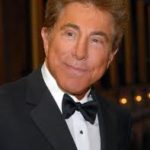 Wynn told Charlie Rose in this 2009 60 Minutes interview: “The only way to win in a casino is to own one.” And he says, even when people are lucky, they usually gamble away their winnings.
Wynn told Charlie Rose in this 2009 60 Minutes interview: “The only way to win in a casino is to own one.” And he says, even when people are lucky, they usually gamble away their winnings.
 At MGM Grand, Murren leads one of the world’s largest casino operations. He is also a strong proponent of legalizing online gambling, especially in social media.
At MGM Grand, Murren leads one of the world’s largest casino operations. He is also a strong proponent of legalizing online gambling, especially in social media.
 In this June 2011 story by Casino Enterprise Management, Adelson, the casino billionaire, says he gambles only on vacation when he is on an island and takes only $500 with him – a far cry from those local citizens who are now gambling at his Bethlehem (PA) Sands Casino between 150 to 200 times a year.
In this June 2011 story by Casino Enterprise Management, Adelson, the casino billionaire, says he gambles only on vacation when he is on an island and takes only $500 with him – a far cry from those local citizens who are now gambling at his Bethlehem (PA) Sands Casino between 150 to 200 times a year.
 As the head of Genting, Lim has helped to drive well-financed, relentless lobbying efforts to allow casinos in several states including New York, Florida and Massachusetts. Worth close to a billion dollars, does Lim regularly lose any of his personal fortune on his own “service?”
As the head of Genting, Lim has helped to drive well-financed, relentless lobbying efforts to allow casinos in several states including New York, Florida and Massachusetts. Worth close to a billion dollars, does Lim regularly lose any of his personal fortune on his own “service?”
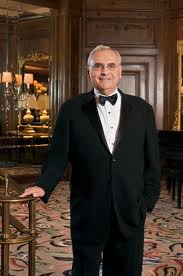 Bluhm owns many casinos in the US. Does this billionaire lose any of his fortune gambling inside casinos? According to this excerpt taken from The Chicago Tribune:
Bluhm owns many casinos in the US. Does this billionaire lose any of his fortune gambling inside casinos? According to this excerpt taken from The Chicago Tribune:
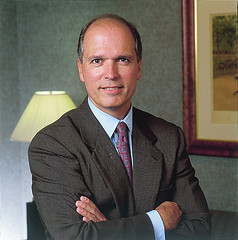 Penn National has been an influential player across the country in lobbying for small regional casinos that extract hundreds of millions of dollars of wealth from ordinary Americans. Their profit model is based on getting people to gamble away their money at least 4-5 times per week.
Penn National has been an influential player across the country in lobbying for small regional casinos that extract hundreds of millions of dollars of wealth from ordinary Americans. Their profit model is based on getting people to gamble away their money at least 4-5 times per week.
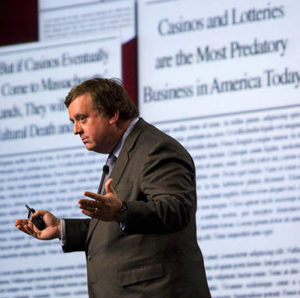 Loveman, the man who was paid $40 million in one year for encouraging millions of Americans to lose their money during this severe financial crisis, does not gamble. As Wall Street Journal Christina Binkley reported in her book “Winner Takes All” (Pg. 177):
Loveman, the man who was paid $40 million in one year for encouraging millions of Americans to lose their money during this severe financial crisis, does not gamble. As Wall Street Journal Christina Binkley reported in her book “Winner Takes All” (Pg. 177):
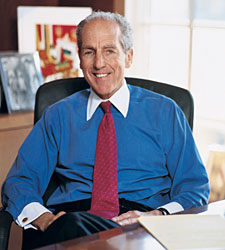 Cordish profits from a business that makes more than half its money from gambling addicts and spends millions of dollars marketing to gamblers who chase their losses– those gamblers who lost the money they came with and then hit the casino ATM to withdraw their savings to lose even more.
Cordish profits from a business that makes more than half its money from gambling addicts and spends millions of dollars marketing to gamblers who chase their losses– those gamblers who lost the money they came with and then hit the casino ATM to withdraw their savings to lose even more.
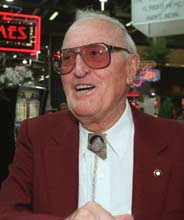 The late Si Redd, the man known as “the King of Slots” for designing the modern slot machine, did not even play the machines he invented according to this excerpt in The Las Vegas Sun from June 25, 2001:
The late Si Redd, the man known as “the King of Slots” for designing the modern slot machine, did not even play the machines he invented according to this excerpt in The Las Vegas Sun from June 25, 2001:
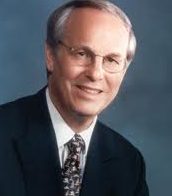 ”It’s the slot machine that drives the industry today,” Fahrenkopf said in this 2004 New York Times story. Yet despite being the lead spokesman for the predatory gambling operators of America, here is what he had to say later in the same story about his trade’s primary money maker:
”It’s the slot machine that drives the industry today,” Fahrenkopf said in this 2004 New York Times story. Yet despite being the lead spokesman for the predatory gambling operators of America, here is what he had to say later in the same story about his trade’s primary money maker:
 From The New York Times Magazine cover story written by Gary Rivlin, May 9, 2004:
From The New York Times Magazine cover story written by Gary Rivlin, May 9, 2004:
 From a column written by The Providence Journal’s M. Charles Bakst, May 13, 2004:
From a column written by The Providence Journal’s M. Charles Bakst, May 13, 2004:
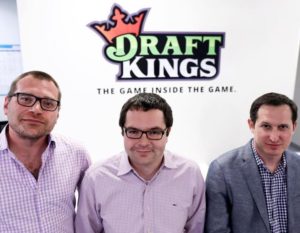 DraftKings and other “daily fantasy sports” companies are really online gambling operators.
DraftKings and other “daily fantasy sports” companies are really online gambling operators.
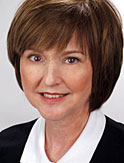 Reilly is a key leader of the NCRG, a wing of the casinos’ main trade group, the American Gaming Association, that funds most of the scientific research on gambling addiction in the United States. The NCRG has helped casinos gain a legal foothold across the country — and covered up the ways casinos profit from gambling addiction.
Reilly is a key leader of the NCRG, a wing of the casinos’ main trade group, the American Gaming Association, that funds most of the scientific research on gambling addiction in the United States. The NCRG has helped casinos gain a legal foothold across the country — and covered up the ways casinos profit from gambling addiction.
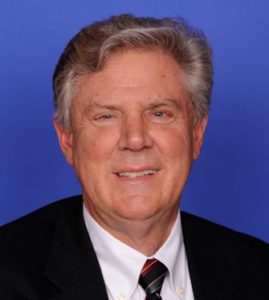 Pallone is the biggest advocate for sports gambling operators in Congress. But does he waste any of his taxpayer-funded salary on government-sanctioned gambling games? Will he bet and lose his own cash if sports gambling is permitted?
Pallone is the biggest advocate for sports gambling operators in Congress. But does he waste any of his taxpayer-funded salary on government-sanctioned gambling games? Will he bet and lose his own cash if sports gambling is permitted?
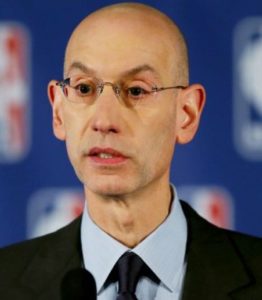 Silver has been the champion for widespread sports gambling among the professional sports commissioners.
Silver has been the champion for widespread sports gambling among the professional sports commissioners.
This detailed history of greyhound racing was compiled by Grey2K:
This study in The Australian Journal of Public Health explored children’s awareness of sports betting advertising and how this advertising may influence children’s attitudes, product knowledge and desire to try sports betting.
Results: Children recalled in detail sports betting advertisements that they had seen, with humor the most engaging appeal strategy. They were also able to describe other specific appeal strategies and link these strategies to betting brands. Many children described how advertisements demonstrated how someone would place a bet, with some children recalling the detailed technical language associated with betting.
Conclusions: Children had detailed recall of sports betting advertisements and an extensive knowledge of sports betting products and terminology.
Ohio citizens betting at the state’s four casinos, seven racinos at horse-race tracks, and the Ohio Lottery have lost $9.7 billion in the past four years, according to a Columbus Dispatch analysis. Including all major forms of legal gambling, nearly $62.9 billion was bet and $53.3 billion was won from 2012 to 2015.
While the winning percentage at casinos is very high — up to 90 percent of the money bet on slots — losses add up when so much money exchanges hands.
In calendar year 2015 alone, $535 million was lost on slot machines and $273 million on table games at Ohio casinos.
Although men are by no means immune, most of the big stories about problem gambling in New Mexico have involved women since the legalization of slot machines and other casino gambling in the mid-1990s.
The issue can also affect the mom next door, and researchers in recent years have been looking deeper at female problem gambling as a result of what some call the “feminization of gambling.”
Female gamblers prefer nonstrategic forms of wagering, like slot machines, which have a fast pace of winning and losing that is associated with increased risk of problem gambling, researchers have found. And women can access the devices much easier today because of the explosion in legalized slot machine gambling in the United States and around the world.
Women develop gambling problems almost exclusively with slot machines, researchers say. Some men also develop an addiction to the devices, but research shows male problem gamblers typically branch out to wager on table games, races, sports and lotteries.
When it comes to its casino expansion initiative as a vehicle for economic prosperity, New York seems very eager to keep hitting. But it’s a gamble that, at the moment, doesn’t appear to be paying off.
Three new upstate commercial casinos opened this year: del Lago Resort and Casino in Waterloo; Rivers Casino and Resort in Schenectady; and Tioga Downs in the Southern Tier. All have failed to produce the amount of revenue that was initially predicted.
The three casinos are estimated to produce a combined $220 million less in revenue this year than they promised to state regulators when they won their bids to build the casinos three years ago. Del Lago has generated $113 million in gambling revenue in its first nine months, far short of its $263 million projection.
Throughout the decades Sunny Chanthanouvong has served his Lao community in Minnesota, he wanted to solve one widespread problem that has had crippling financial and social effects on many Lao-Americans: obsessive gambling.
As the executive director of the north Minneapolis-based Lao Assistance Center of Minnesota, Chanthanouvong has worked with people who lost their savings, jobs and children as a result of their addiction to gambling.
Those who succumbed to the addiction, said Chanthanouvong, included his relatives and close friends, who have lost young children to the child protection services after leaving them home alone for gambling.
WABC Eyewitness News in New York City found that many Asian-American on casino buses aren’t going to gamble, they’re there out of necessity. It’s about making a few bucks just to get by, and it’s happening seven days a week, as long as the buses are running.
According to this excellent investigative reporting by Australia’s Herald Sun:
Billions of dollars are being bet on rugby league and other major sports using unregulated offshore gambling companies — and football bosses are helpless to stop it.
Government regulations aimed at illegal gambling and the threat it poses to the integrity of sport are “laughable”, according to insiders.
Racing Australia chief executive Peter McGauran said rugby league and other football codes were like “babes in the woods” as they battled overseas gambling interests.
The Philippines, Malta, Antigua and remote Alderney in the Channel Islands have become betting havens for punters wishing to outlay hundreds of thousands of dollars to escape detection by Australian regulators.
A leading racing figure, who asked not to be named, estimated $1 billion a year is bet overseas on Australian sports.